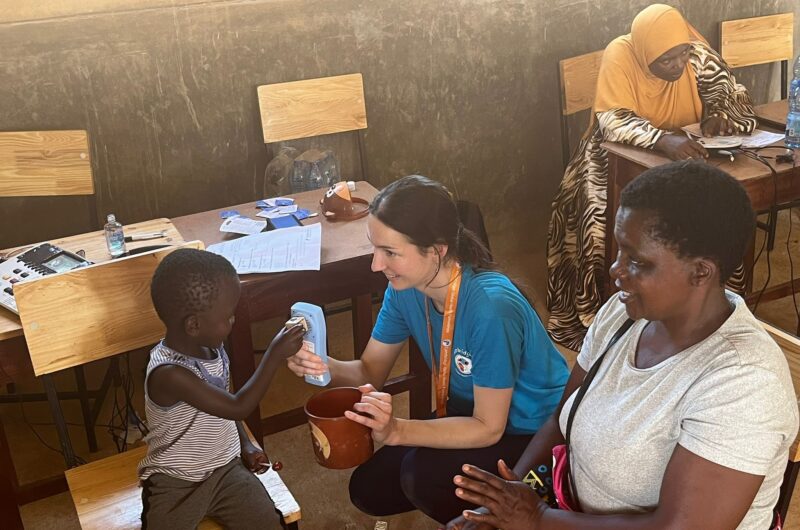Rebecca Silkstone is a Trainee Clinical Scientist (Audiology) at Cambridge University Hospitals NHS Foundation Trust (CUH). She used a CGHP grant to help fund a visit to Malawi to participate in a project delivering ear camps to rural communities. Here she explains why she got involved and the impact the experience had on her.
“I value working for the NHS because it provides equal, free access to healthcare. The health disparities around the world, especially with regards to access are vast, but I believe that some could be addressed with the careful placement of resources we have available now and others should be worked towards. On the scientist training programme (STP) I have the opportunity to take time out of work for an elective, and I decided to do this in a low-income country where I could collaborate with local people to understand how they think improvements could be made. I hoped that this might provide an opportunity for me to become more involved in global healthcare in the future.
I joined the Malawi Hearing Project, which aims to improve awareness of and access to Ear and Hearing Care (EHC); support better provision of affordable hearing equipment (including novel bone conduction headsets) and build local capacity by training healthcare and community workers on assessing ear pathology and hearing.
The partnership involves the audiology department at Queen Elizabeth Hospital in Blantyre, community engagement NGO Anzathu, and CGHP members including audiologists, ENT surgeons and paediatricians. The structure allows UK and Malawian healthcare staff to learn from one another and jointly problem solve.
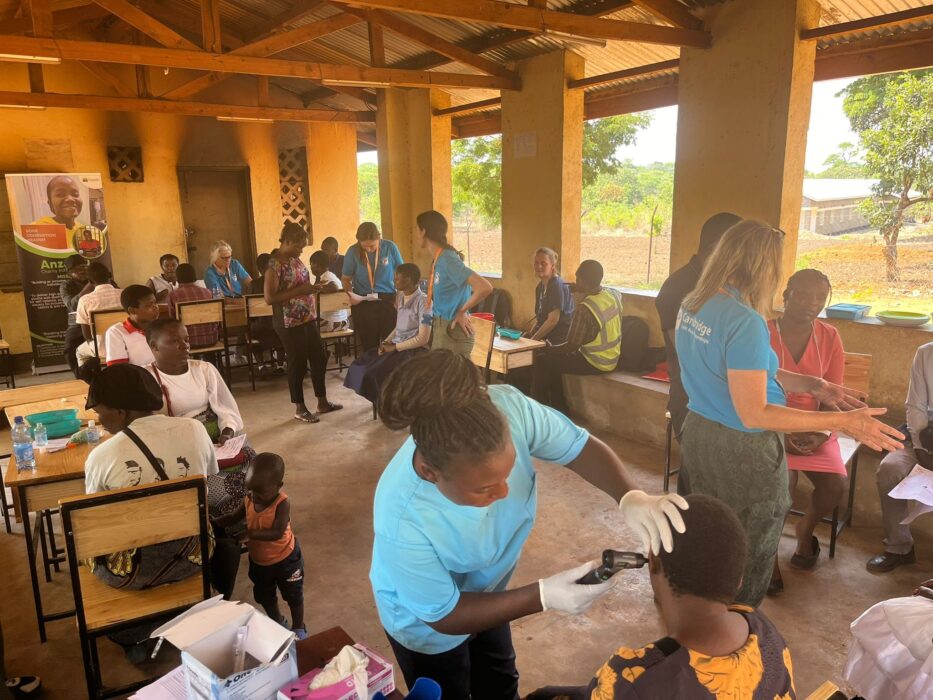
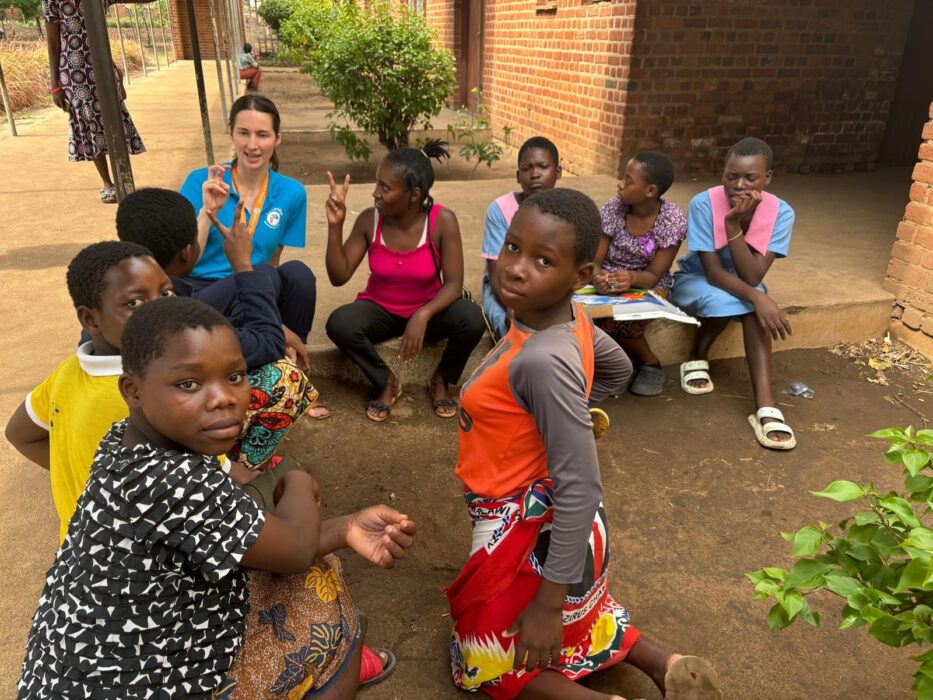
Background to the project
There are only a handful of audiologists in Malawi and just five ENT surgeons. Many rural communities have none or very limited access to healthcare and cannot afford to travel to an urban hospital. However, with disabling hearing loss in Malawi at more than 1 in 10 and a high incidence of middle ear disease, many preventable hearing loses (for example glue ear in children) are left untreated. The project visit was an opportunity to take ear care to rural areas, to build awareness, reduce stigma and provide treatments and devices to suitable patients.
My impact
Alongside my supervisor (Charlotte Skipper) and the Queen Elizabeth Hospital lead audiologist (Mwanaisha Phiri) I carried out hearing tests for patients at the ear camps who needed them. An important part of this was identifying true and reliable responses and recognising when patients may not have understood the assessment and needed re-instruction. This was a valuable contribution, as misleading results can lead to people being given hearing devices who don’t need them, and those who do missing out. Overall, my biggest impact was being an adaptable and positive member of the team, where the team’s collective skill sets and desire to make a difference made the project a success.
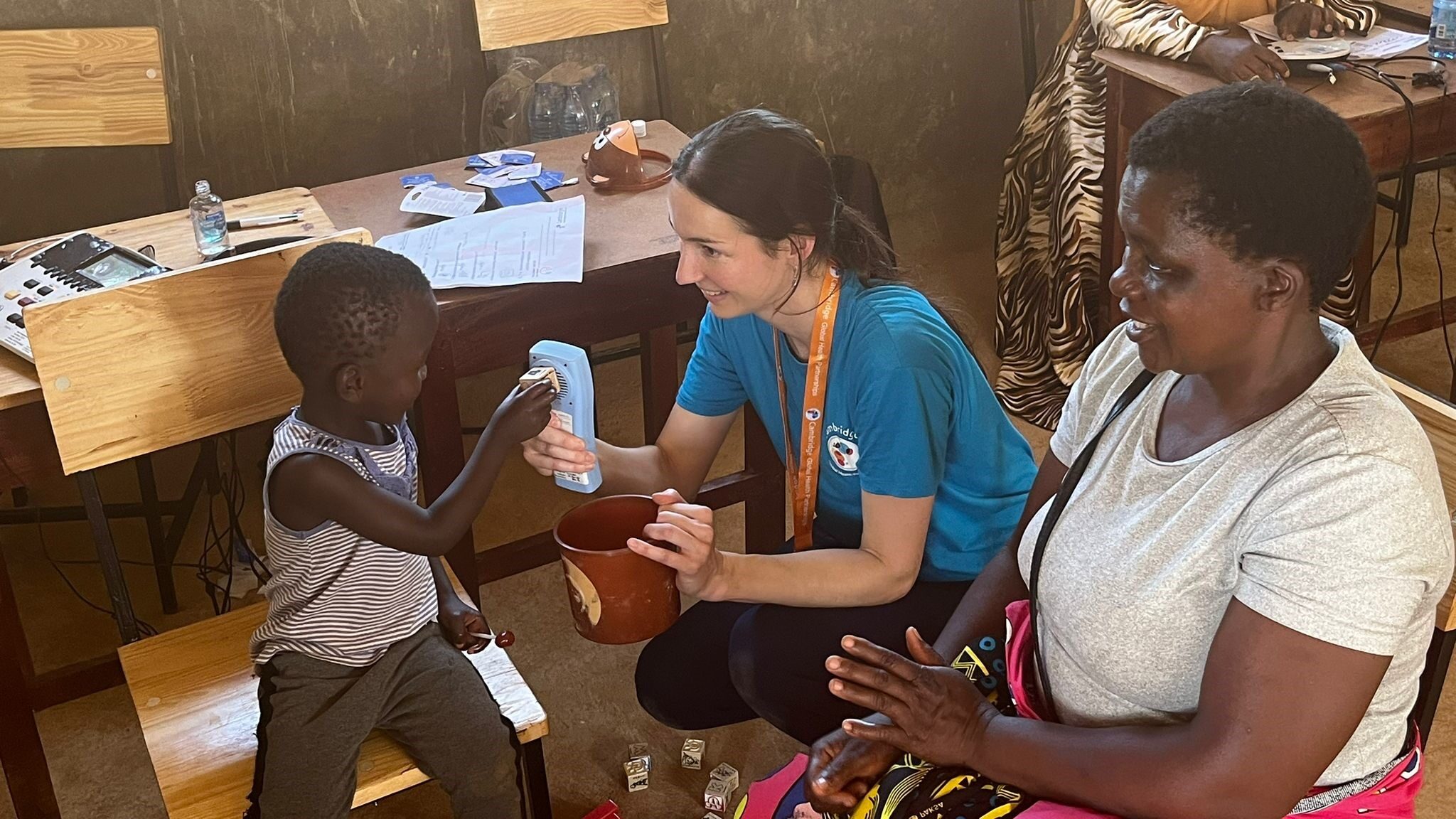
The most challenging part of the experience was working in a very hot environment and making on-the-spot decisions that potentially might not be followed-up, and not in the same way as patients are followed up in the UK.
The most rewarding experience was knowing that, as a team, we saw over 800 patients in a week, and that all of them would be in a better position than they were.
Although we strived for excellence, resources aren’t currently available for patients to receive the same hearing healthcare as in the UK. I found it very difficult to think how different their pathway would be if they lived in Cambridge, especially the children.

Personal and professional development
Although I’d always wanted to be part of a project like this, other events in my life have been a barrier. I now feel motivated to remain involved in this project, as it has become a reality rather than a thought. I feel empowered to make a difference, but also proud of the people from Addenbrooke’s Hospital who I knew nothing about before: incredible people working in the same Trust as me.
The experience reminded me that sometimes decisions might not be perfect but are right for the situation, to be pragmatic and to remember the bigger picture. As a scientist, measurement accuracy is important, but sometimes small details can be overwhelming. It was an experience that highlighted the importance of the ‘end goal’, and although an awareness of all the details is needed, the details that change the management plans are the ones to prioritise.
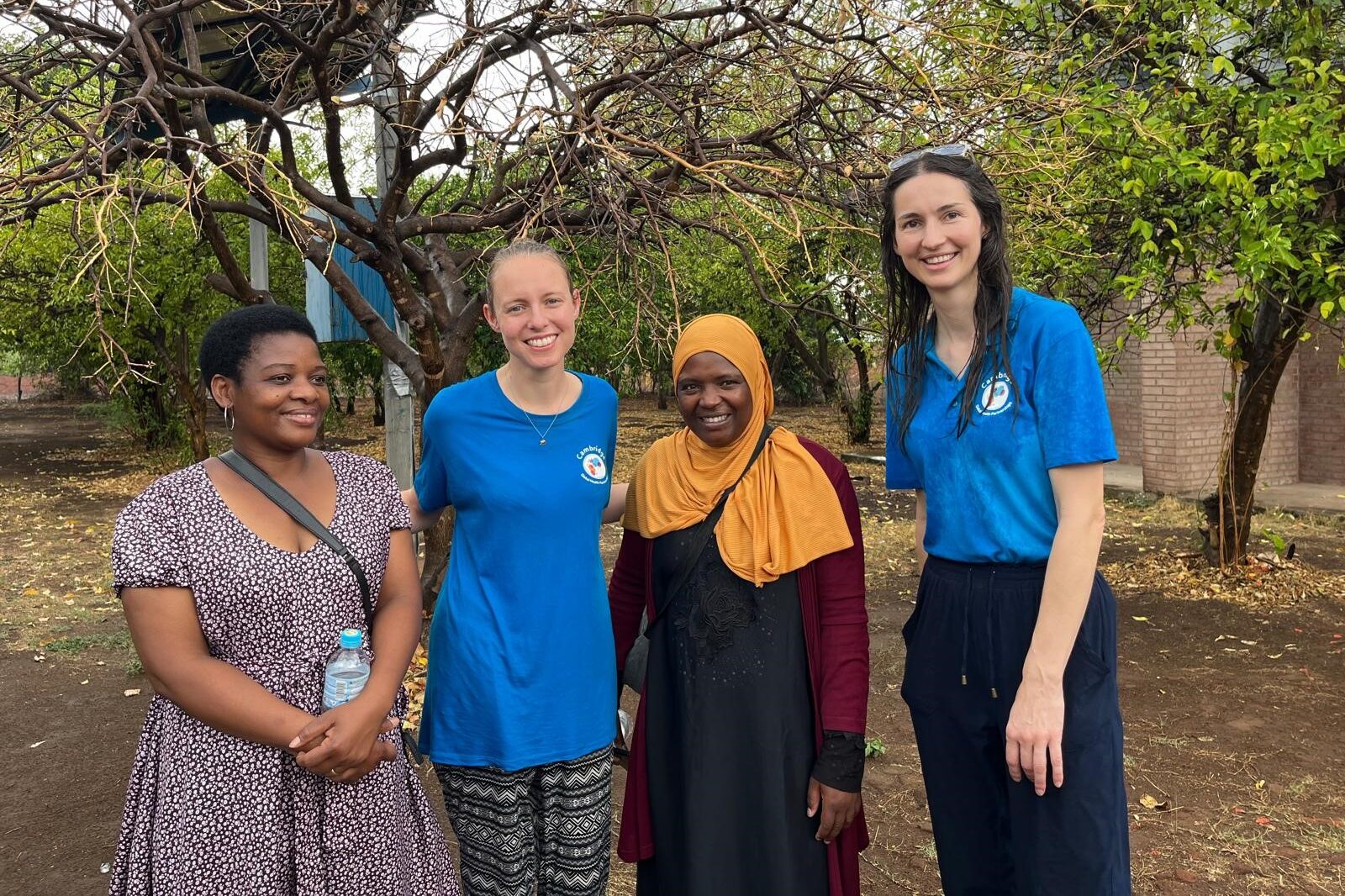
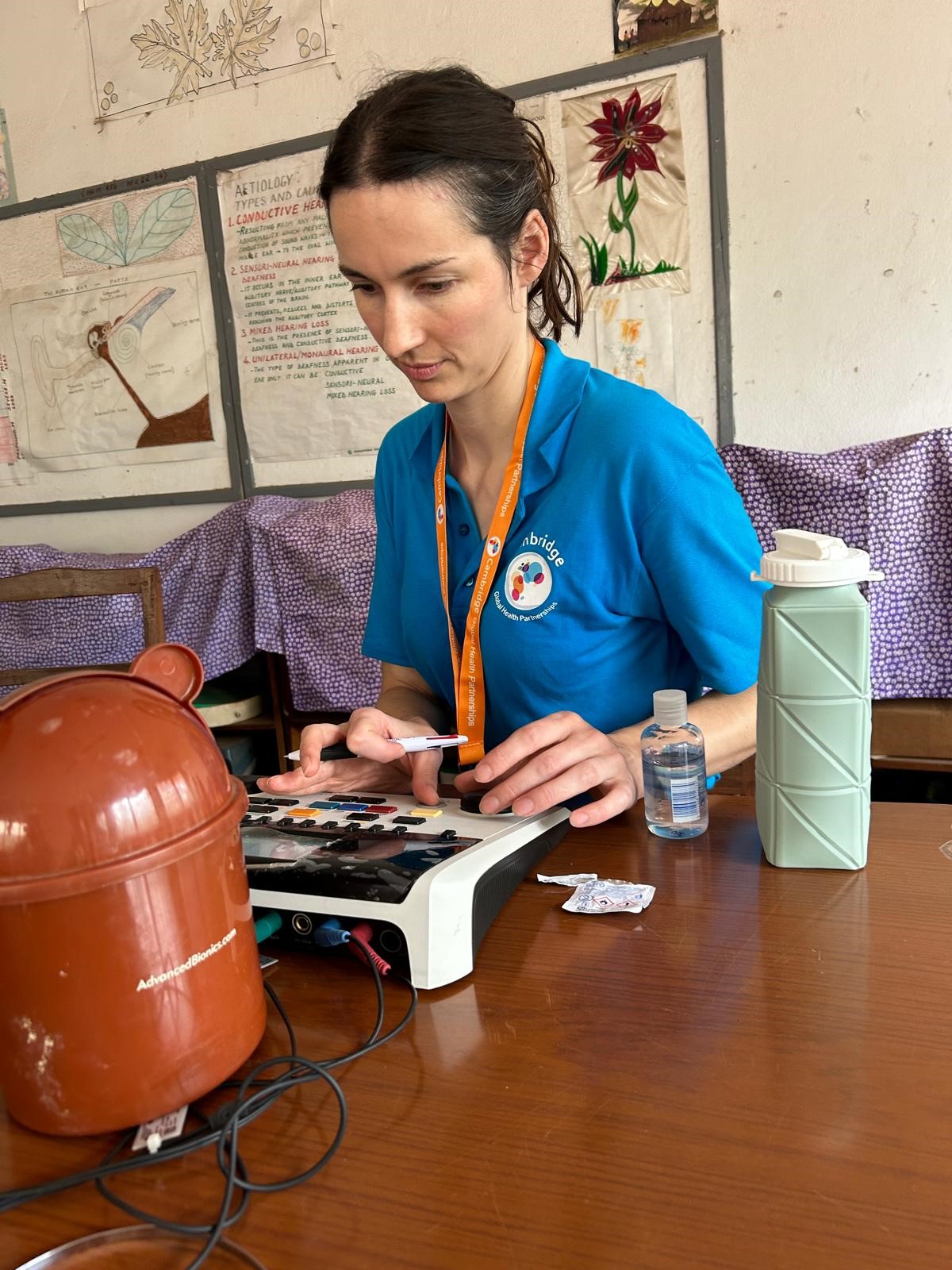
Impact of the visit
The visit provided equipment and consumables (such as batteries for hearing devices and funds for running costs, including a battery for a vehicle for future use), as well as collaborative discussions and planning support to healthcare staff in Malawi.
Over 800 patients were given ear healthcare, who would otherwise be unlikely to visit a healthcare professional. The patients who received devices will have improved access to sound, which could improve access to education, work and socialisation, as well as their quality of life. Some teachers were shown how to operate, charge and maintain the bone conducting headsets to use with students who have glue ear, discharging ears or conductive hearing loss.
Since the visit we have reflected on our use of clinic time, resourcefulness and the reusability of some consumable items. It’s clear that there is avoidable plastic waste, where hygiene can be maintained via sterilisation processes instead.”
Getting involved in a global health project has been a rewarding and a lifechanging experience. It’s an opportunity to use your skills in a different way and be more resourceful.
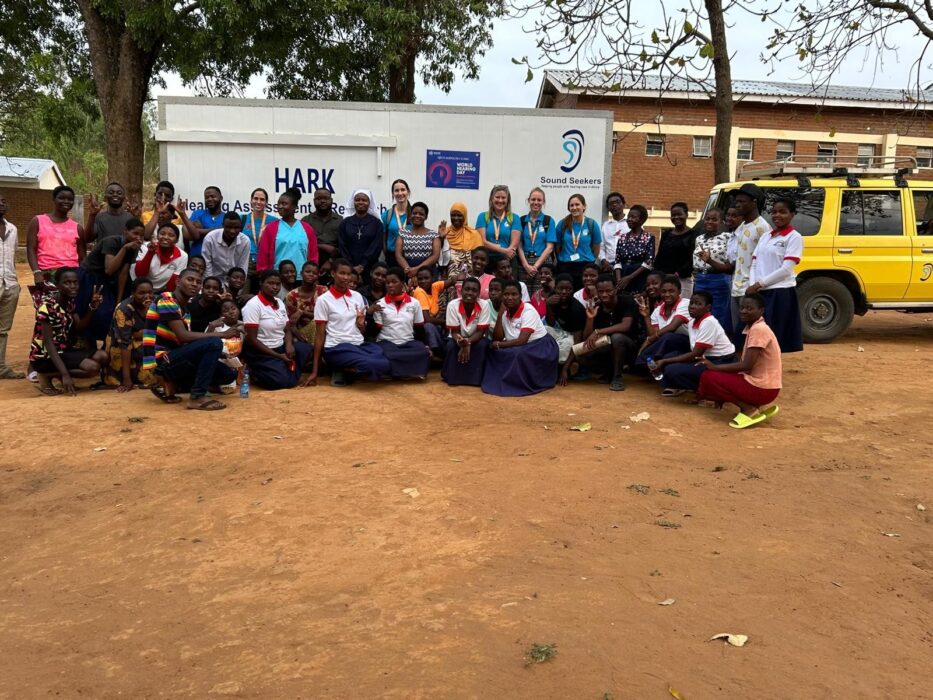
Find out more about the Malawi Hearing Project, the CGHP Grant Scheme or contact us at info@cghp.org.uk
Return to blogs

